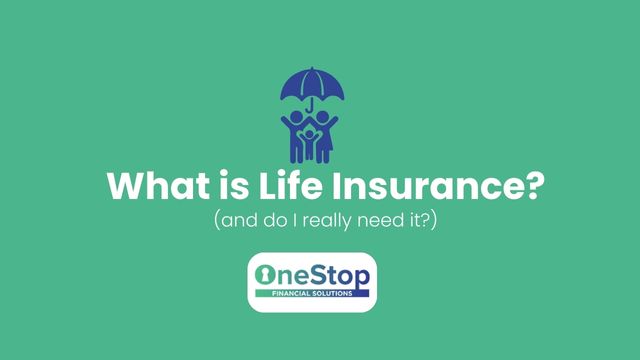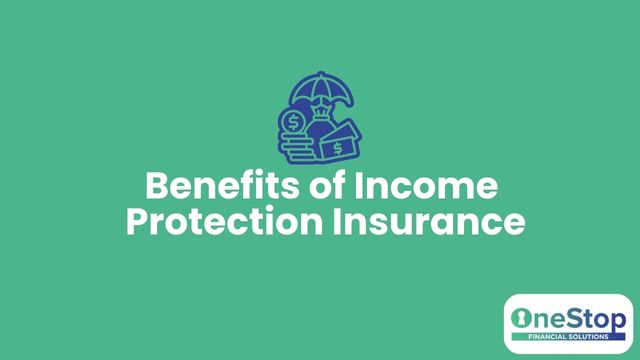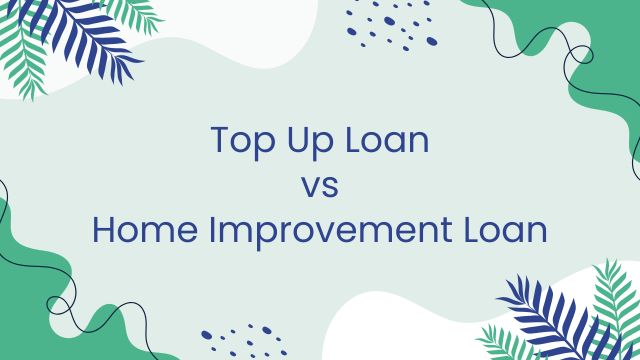Life insurance is one of those financial products many people know they should think about, but often push aside until later in life. At its core, life insurance is a contract between you and an insurer. You agree to pay a regular premium, and in return, the insurer promises to pay a lump sum to your chosen beneficiary if you pass away or are diagnosed with a terminal illness.
In New Zealand, life insurance plays a vital role in protecting families, paying off mortgages, and safeguarding futures against uncertainty. With the cost of living on the rise, more Kiwis are recognising the importance of planning ahead. Whether you’re a young professional with student loans, a parent with children, or someone considering funeral costs in retirement, life insurance can help reduce the financial burden on your loved ones.
This guide covers everything you need to know: how much life insurance costs, how much cover you might need, the different types of policies available, and how to get started.
Table of Contents
What Is Life Insurance?
Life insurance is a policy designed to provide financial protection for your family or dependents. If you pass away or are terminally ill (typically defined as having less than 12 months to live), the insurance pays a lump sum to your nominated beneficiary. That money can be used to pay debts, cover daily expenses, or fund future needs, like a child’s education.
A life insurance policy is essentially a contract between the policyholder and the insurer. The insurer takes on the risk of an early death in exchange for regular payments (premiums). This risk is priced using actuarial science; the study of life expectancy, disease and accident statistics, and other factors.
Historically, life insurance has roots in The Equitable Life Assurance Society in 18th-century England, with contributions from pioneers like James Dodson and later U.S. jurist Joseph P. Bradley.
Life insurance differs from other products like funeral cover or income protection. Funeral cover only pays for final expenses, while income protection insurance replaces your income if you’re unable to work due to sickness or injury.
Benefits of Life Insurance
Here are the five big benefits I share with clients:
- Financial security for your family: helping cover income, living costs, and mortgages.
- Debt repayment: clearing loans and credit cards.
- Covering funeral costs so families don’t carry the burden.
- Supporting future goals: education, retirement, or leaving an inheritance.
- Peace of mind in uncertain times.
The Different Types of Life Insurance Cover Available in NZ
Here’s a breakdown of the different types of life insurance cover available in New Zealand. A life insurance broker can help you compare these options and find the policy that best suits your needs.
Term Life Insurance
This is the most common type of life insurance in New Zealand. Term cover insures you for a defined period, usually until a certain age (such as 65, 70 or 80) or for a fixed number of years. If you die, or in some cases are diagnosed with a terminal illness during the term, your beneficiaries receive the lump sum.
There are different premium structures within term life:
- Yearly renewable (rate for age): Premiums start low but increase each year as you get older.
- Level premiums: Premiums are fixed for a long period, often until age 65, 70 or 80, which means you pay more early on but avoid steep increases later.
- Hybrid: A combination of the two, designed to balance affordability now and stability later.
You can also choose to index-link your cover so the sum insured automatically increases each year to keep pace with inflation.
All of Life Insurance
This is a permanent form of cover that lasts as long as you continue paying premiums, until you make a claim or cancel. Unlike term life, it doesn’t expire at a set age. Whole of Life insurance isn’t sold new in New Zealand anymore, but there are still many existing contracts in force, especially among older generations. If you ever have to help settle a parent’s estate, you may come across one of these policies.
Group Life Insurance
Many employers offer group life insurance as part of a workplace package. It’s cost-effective, because the insurer prices it across a whole group, but the downside is it’s not usually customisable to your personal needs. Cover generally ends when you leave that job or retire.
Direct Life Insurance
Direct life insurance is purchased straight from an insurer without using a broker or adviser. It can sometimes be more cost-effective and simple to arrange, but you’ll be responsible for comparing products yourself and making sure the contract wording suits your needs.
Life Insurance for Older Kiwis
Some insurers specialise in products for people aged 50+, with simplified application processes that don’t require medical tests. Premiums are higher, but they can provide peace of mind if you’re looking for cover later in life.
Mortgage Protection Insurance
Mortgage protection is designed to cover your home loan repayments if you’re unable to work due to sickness or injury, and in some cases it will also pay out if you pass away. Policies vary a lot in their waiting periods, benefit periods, and cover limits, so it’s important to compare carefully.
Terminal Illness Insurance
Most life policies include a terminal illness benefit. If you’re diagnosed with a terminal illness (with a life expectancy of 12-24 months) you can access your life insurance benefit early. This lump sum can help with palliative care, intensive care medicine, or planning funeral arrangements in advance. You can also take out a critical illness policy on its own.
Total and Permanent Disability (TPD) Insurance
TPD pays a lump sum if you become totally and permanently disabled and can’t return to work. This money can go towards medical treatment, modifying your home, or ongoing living expenses. Like life cover, TPD usually has an entry age limit and expiry age.
Income Protection Insurance
While technically a different product, income protection sits within the life insurance market. It provides a regular monthly payment (up to about 75% of your income) if you can’t work due to illness or injury. In New Zealand, it’s especially useful if you rely heavily on your salary or wages to meet living costs.
Why Do People Take Out Life Insurance?
The reasons for buying life insurance vary, but most fall into one of a few categories:
- Protecting your family’s income: If you have a partner or child who depends on your income, life insurance can help maintain their standard of living.
- Covering debts and mortgages: A payout can ensure your mortgage, personal loans, or credit card balances are cleared, preventing loved ones from inheriting debt.
- Final expenses and funeral costs: Funerals in New Zealand can cost $10,000 or more. Life cover provides peace of mind these expenses are taken care of.
- Replacing future income: Even if you’re single, life insurance can support parents or siblings who might otherwise face financial strain.
- Business continuity: In some cases, life insurance helps business partners or shareholders protect assets and contracts in the event of a death.
Do I Need Life Insurance If I’m Single?
A common misconception is that life insurance is only for parents with children. While it’s true families benefit greatly from cover, singles can also have important reasons to take out a policy.
If you have a mortgage or other debts, life insurance ensures they don’t fall onto your parents or estate. If you’ve co-signed a loan, your co-borrower may be left responsible without cover. Additionally, a life policy can help pay for your funeral, leaving family with fewer expenses at an already stressful time.
Is Life Insurance Worth It After Age 65?
By retirement age, many clients have paid off their mortgage, and their children are financially independent. That’s why some let their policies lapse. But I also meet people over 65 who still find life insurance worthwhile.
Why? It can cover funeral costs, provide for palliative care or intensive care medicine, and leave something behind for a partner or child. Just remember, premiums increase with age, and exclusions (like suicide clauses or pre-existing conditions) can limit claims. It’s always worth weighing the cost against the benefit.
How Much Life Insurance Do I Need?
This is one of the most common questions I get. A rough guide is 10–15 times your annual income. But everyone’s situation is different.
Here’s what I encourage clients to think about:
- How much debt is on your mortgage, loans, or credit cards?
- What are your family’s everyday expenses?
- Do you want to fund future goals like your child’s education or your partner’s retirement?
- What assets, savings, or KiwiSaver balances do you already have?
For example, a young couple with a $600,000 mortgage and two children might need around $1.5m in cover. But a single professional with no dependants may only need enough for debts and funeral costs. That’s where speaking to an insurance broker or financial adviser really helps — we can crunch the numbers based on your personal risk.
How Much Should Life Insurance Cost in NZ?
Premiums vary widely. A healthy 30-year-old non-smoker might pay under $20 a month for $500,000 cover. A 55-year-old smoker could pay over $200 a month for the same policy.
Factors like health history (heart conditions, cancer risk, injury history), job, lifestyle, and even family medical history all influence the price. That’s because actuaries look at probability, life expectancy, and present value of claims to set premiums.
Some insurers also add fees, such as policy fees or adviser commissions, so it’s worth comparing carefully.
How Do I Get Life Insurance in New Zealand?
The process usually looks like this:
- Decide how much cover you need.
- Choose the right type of policy (most Kiwis opt for term life insurance).
- Compare insurers. Major players here include AIA, Partners Life, Fidelity Life, Chubb Life, and nib.
- Fill out an application.
- Go through underwriting, where the insurer may ask for health information, blood tests, or GP notes.
- Once approved, your policy starts when you make your first payment.
You can buy directly online, but I often recommend going through a broker or adviser. We can explain the contract wording, policy exclusions, and help you avoid surprises when it’s time to make a claim.
[divi_shortcode id=”282602″]
Other Frequently Asked Questions About Life Insurance
Can you get life insurance at 18?
In New Zealand, most insurers allow you to take out life insurance from the age of 18. Some providers even offer cover from as young as 16 if you have financial dependents or debts. Starting young can mean lower premiums because you’re considered lower risk.
Do you need life insurance to get a mortgage NZ?
Life insurance isn’t legally required to get a mortgage in New Zealand, but many banks strongly recommend or encourage it. The idea is to protect your family or co-borrower if something happens to you, ensuring the mortgage can still be repaid. Some lenders may also suggest mortgage protection insurance, which is different but related.
What age does life insurance stop?
In New Zealand, most life insurance policies last until age 70 or 80, depending on the insurer and policy type. Some older policies may offer cover that continues until 100 if you keep paying your premiums. Always check your policy’s expiry age.
Can you take out over 55 life insurance?
Yes, you can still apply for life insurance if you are over 55 in New Zealand. Premiums will generally be higher due to increased risk, but options exist, including guaranteed acceptance policies that don’t require medical checks. These can be helpful for covering funeral costs or leaving an inheritance.
How do I stop a life insurance policy?
You can cancel your life insurance policy at any time by notifying your insurer in writing or over the phone. Once cancelled, you will no longer pay premiums and your cover ends immediately. Some policies with a cash value component may provide a small payout if cancelled.
Who are the NZ life insurance companies?
Major life insurers in New Zealand include AIA New Zealand, Partners Life, Fidelity Life, Chubb Life NZ, nib (for life & health insurance), AMP (life insurance policies now managed by Resolution Life). Banks such as ANZ, ASB, BNZ and Westpac also sell life insurance products, usually underwritten by one of the major insurers.
How do I understand life insurance policies in New Zealand?
Life insurance policies can be complex. To understand them we recommend reading the policy documents carefully, and asking about the sum insured, waiting periods, and benefit structures. Check whether your policy includes extras like trauma, income protection, or funeral cover. Seek advice from a licensed financial adviser for clarification.
Where can I arrange life insurance advice?
You can get professional life insurance advice in New Zealand from financial advisers (independent such as myself and the team here at OneStop Financial Solutions or through advisory firms), insurance brokers specialising in life and health cover, and the Financial Markets Authority (FMA) website, which lists licensed advisers. Independent advice helps you compare multiple insurers, not just one provider.
Can I buy life insurance for my partner?
Yes. You can buy a policy that covers your partner separately, or apply for joint life insurance where both partners are insured under one policy. The payout can be structured as “first-to-die” (pays when the first partner dies) or “second-to-die” (pays when both have passed).
Can you get life insurance for couples?
Yes. Couples often take out joint policies. These are usually cheaper than two separate policies, but flexibility can be limited. Some couples prefer individual policies so each partner has independent cover.
Is life insurance the same as funeral cover in NZ?
No. Funeral cover is a type of insurance that pays a smaller lump sum (typically $5,000–$30,000) specifically for funeral costs. Life insurance, on the other hand, provides a larger payout (often hundreds of thousands or millions) to cover mortgages, debts, and family expenses.
What is cash value life insurance NZ?
Cash value life insurance includes an investment component, where part of your premiums build a cash value that you can access, borrow against, or use to reduce premiums. This is rare in New Zealand but may exist through certain permanent life insurance products.
How Is Life Insurance Taxed in NZ?
In New Zealand, life insurance payouts are usually tax-free for beneficiaries. Premiums you pay personally aren’t tax-deductible. But if a business owns the policy, or if the cover is linked to a loan or employment contract, then tax treatment might differ. Disclaimer: I’m an insurance adviser, not a tax accountant. For specific tax advice, please speak with your accountant or tax adviser.
Risks and Misconceptions to Consider
Life insurance isn’t perfect. A few things to watch for:
- Being underinsured: choosing too little cover leaves your family exposed.
- Overinsurance: paying for more than you need is an unnecessary expense.
- Exclusions: most policies exclude suicide within the first 13 months, and any claims tied to fraud or non-disclosure.
- Misunderstanding contracts: always read the policy wording, or ask your adviser to explain the fine print.
Getting Advice and Comparing Policies
When clients ask me how to compare policies, I always suggest:
- Work with a financial adviser or insurance broker. We can compare across multiple insurers.
- Check the financial strength of insurers. You want a company that will be around to pay your claim.
- Review your cover regularly. Your needs change as you buy a home, have a child, or head towards retirement.
- Ask for clear information. Don’t be afraid to ask about underwriting, fees, and exclusions.
Is Life Insurance Right For You?
Life insurance isn’t about fear, it’s about preparation. Whether it’s protecting your child, paying off a mortgage, or making sure funeral expenses are covered, a policy gives you and your loved ones peace of mind.
The right cover amount depends on your debts, income, and family situation, and the cost will vary based on health, age, and lifestyle. The good news? With the right advice, you can tailor a policy to fit your budget and your needs.
If you’re not sure where to start, it’s right here. Book a call with me, and I’ll walk you through the options, explain the contracts, and make sure your future (and your family’s) is protected.





